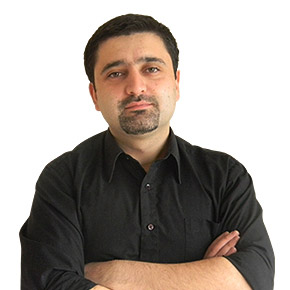At one of TV debates held last year Hassan Rouhani, candidate for President of Iran back then, stated he would organize repatriation of emigrated Iranians if he is elected a President. To put it simply, what he meant was to organize repatriation.
Tehran’s aspiration for returning compatriots to Iran comes out of qualitative development of the country and not out of demography, which is the main reason why other countries pursue a similar policy. Iran's population exceeds 76 million, which is already a serious social-economic challenge considering the high unemployment rates in the country. Therefore, Iran’s primary goal is not to increase the population, which in its turn will result in the increase of economic issues the country faces. On the contrary, repatriates are essential for Iran to ensure economic growth in the first place but not to resolve demographic issues.
The thing is that as a rule, Iranians residing in the West are well-educated and have degrees in modern professions. If we cast a glance at the course of development of Iranian history, then it becomes more than obvious that the vast majority of Iranians who left the country after the Islamic Revolution were those who had received education in the West, were familiar with the way of things in the world and had experience in integrating into foreign societies.
Presently, many of them work as leading doctors, engineers and scientists in various countries; it refers to not only the emigrated Iranians, but also their generations who have been raised in the West. “The 30 Most Important Women Under 30 In Tech” study conducted by Kauffman Foundation last year featured Soraya Darabi, Parisa Tabriz and Roxanne Varza – three women of Iranian origin; consequently, the 10% of the entire list were Iranians, to be more precise - representatives of Iranian emigrants' generation.
Let's agree, it's a serious index for Armenians the majority of which tend to underrate the inherent and acquired abilities of the people of the neighboring countries.
President Hassan Rouhani aims at returning these Iranians in the first place clearly realizing that it's possible to build a new and competitive economy and solve social issues through the economy only by effective use of human and professional resources.
Will the Iranian President's wish prove to be successful? If it remains a merely cautious-patriotic call, then it will apparently, fail. But I would not devote my time to this column if the situation were like that: a State Repatriation Committee has already been set up in Iran and it is actively committed to returning former compatriots to Iran by developing relevant social, economic and integration projects enabling to facilitate the return process, not turning it into a road to obscurity.
The Committee’s ultimate goal is to organize the repatriation of 300.000 to 500.000 Iranians practicing competitive professions and spares no efforts even today, in the background of international sanctions.
Iran obviously has its political peculiarities: the Committee operates within the Ministry of Intelligence and National Security, but it is clear and is a secondary phenomenon in terms of quality.
Sevak Sarukhanyan is a Candidate of Political Sciences. These views are his own.

















